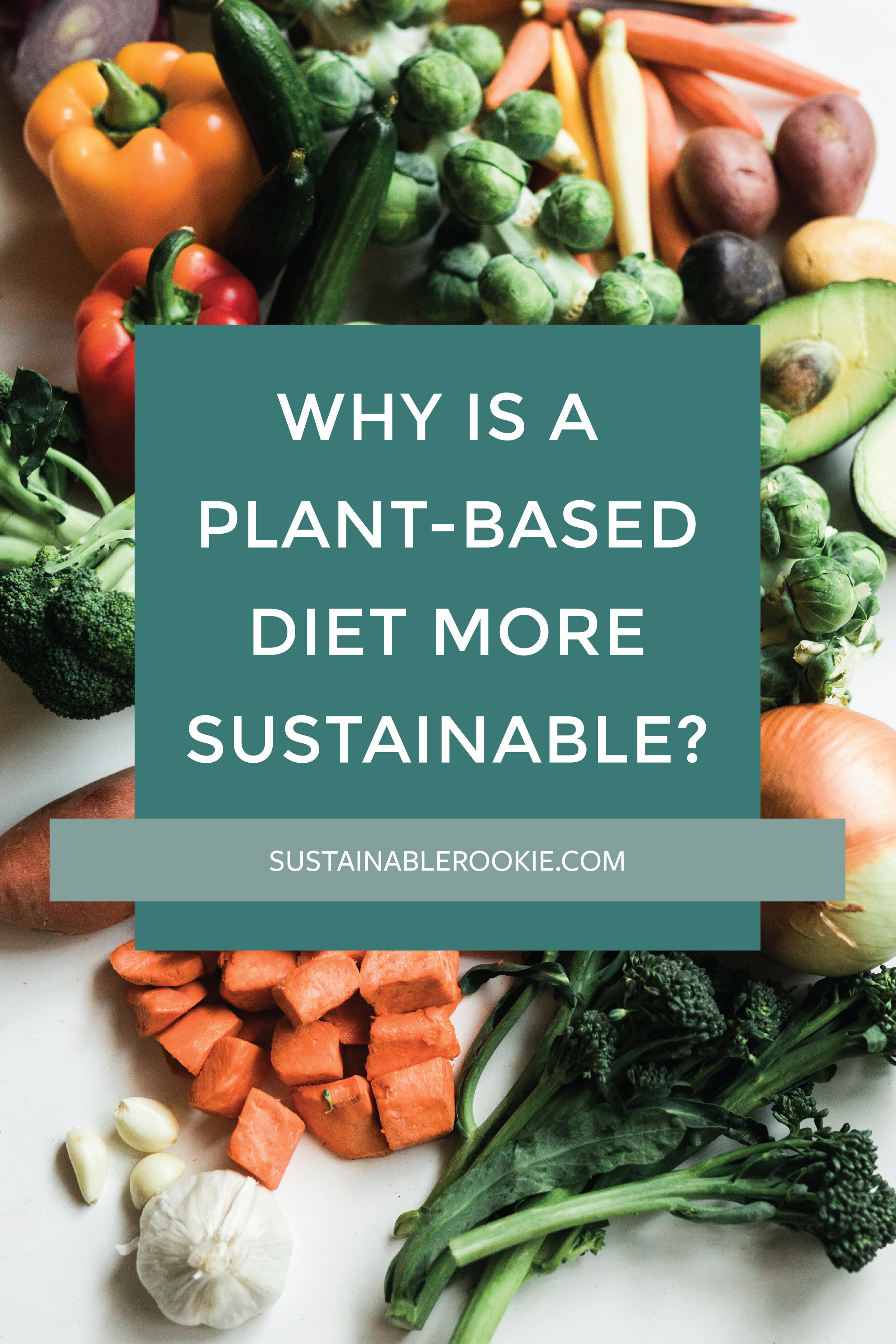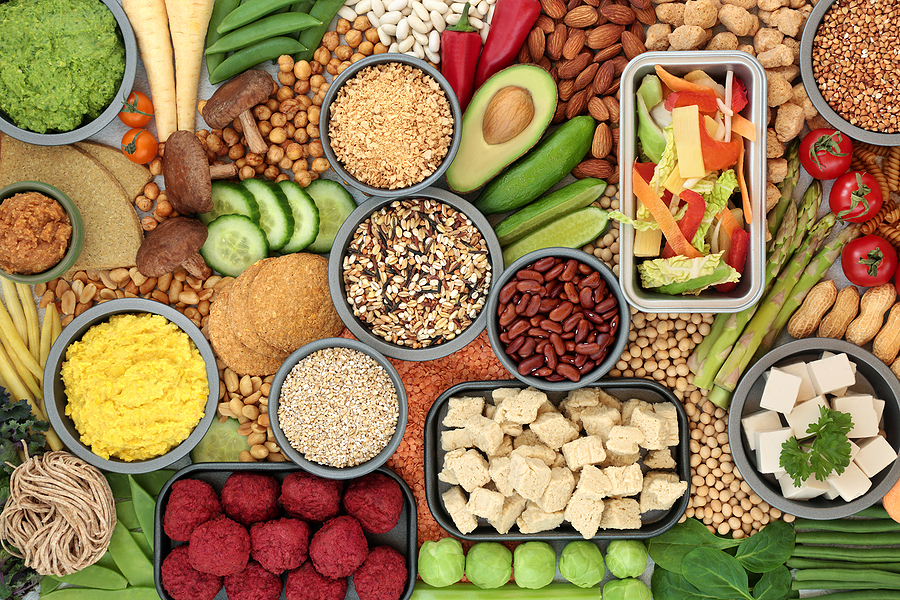The Best Sugar Free Sauces for Diabetics Living a Plant-Based Lifestyle
The Best Sugar Free Sauces for Diabetics Living a Plant-Based Lifestyle
Blog Article
Uncovering the Benefits of Plant Based Meals in Encouraging Healthy Food Choices
Plant-based dishes offer numerous benefits that can improve healthy consuming habits. They focus on nutrient-dense ingredients, adding to general wellness. These meals are abundant in crucial vitamins and minerals, which can result in improved power degrees and digestion. Additionally, they play a significant duty in weight management and persistent illness avoidance. The implications extend beyond personal wellness, touching on ecological sustainability. Exploring these elements reveals a compelling case for including a lot more plant-based foods right into day-to-day diet regimens.
Understanding Plant-Based Diets
What defines a plant-based diet? A plant-based diet regimen mostly includes foods originated from plants, consisting of vegetables, fruits, grains, nuts, and seeds. While it stresses plant foods, it is not necessarily vegan or vegan; some individuals may consist of tiny amounts of pet items. The core principle focuses on prioritizing plant foods for their nutritional advantages and environmental sustainability. This diet plan encourages the consumption of whole, minimally refined foods, usually leading to a boosted consumption of important nutrients. Furthermore, plant-based consuming promotes cooking imagination, as people check out varied recipes and flavors. Eventually, a plant-based diet regimen can be adapted to fit numerous way of livings and preferences, making it an adaptable choice for those looking for to integrate more plant foods into their meals.
Wellness Perks of Plant-Based Cuisines
A plant-based diet regimen uses a wide range of health advantages that can boost overall well-being. Research study shows that people following this diet plan frequently experience reduced risks of persistent illness, such as heart disease, diabetic issues, and certain cancers cells. Rich in minerals, antioxidants, and vitamins, plant-based meals sustain immune feature and promote cellular wellness. Furthermore, these diet regimens are usually high in dietary fiber, which aids digestion and aids keep healthy cholesterol levels. The addition of whole foods, such as fruits, veggies, beans, and whole grains, adds to enhanced power levels and psychological clearness. In addition, the anti-inflammatory buildings located in many plant-based foods can help in reducing inflammation in the body, promoting much better joint and cardio health and wellness.
Influence on Weight Management
The effect of plant-based dishes on weight administration can be substantial due to their nutrient density and lower calorie intake. These dishes commonly provide necessary nutrients while minimizing empty calories, promoting much healthier eating habits. As a result, people may discover it easier to lose or maintain weight via a plant-based diet plan.
Nutrient Density Advantages
While several diet plans focus on calorie restriction, the principle of nutrient thickness uses a much more alternative approach to weight monitoring. Nutrient-dense foods are rich in vitamins, minerals, and antioxidants while being reduced in calories. This permits individuals to eat larger parts without surpassing their caloric requirements. Plant-based dishes, which frequently include fruits, vegetables, entire grains, and legumes, exhibit nutrient density. These foods not just support weight monitoring but also advertise satiety, lowering the likelihood of overeating. Additionally, a high intake of nutrient-dense foods can cause improved metabolic health, as they give the necessary nutrients for peak physical feature. Eventually, focusing on nutrient thickness can promote healthier consuming patterns and add to sustainable weight administration approaches.
Minimized Caloric Consumption
Reduced calorie consumption plays a significant role in reliable weight monitoring, as it directly influences a person's power balance. Plant Based Chicken. Plant-based meals are usually reduced in calories while being abundant in necessary nutrients, making them an ideal option for those looking for to lower caloric intake without sacrificing nourishment. By integrating extra fruits, vegetables, entire grains, and beans, people can take pleasure in larger part dimensions that advertise satiation. This technique not just help in weight-loss yet also promotes sustainable eating habits. Additionally, plant-based diet regimens commonly lower the consumption of refined foods high in included sugars and unhealthy fats, which can contribute to excess caloric consumption. Inevitably, a focus on plant-based dishes can sustain much healthier weight monitoring strategies and long-lasting health
Minimizing the Danger of Chronic Conditions
Including plant-based meals right into one's diet can significantly reduce the risk of chronic conditions. Various studies demonstrate that diet regimens rich in fruits, veggies, whole grains, and beans are connected with decreased incidences of heart problem, diabetic issues, and specific cancers. The high fiber material of plant-based foods contributes to better gastrointestinal health and boosted cholesterol levels, while antioxidants and phytochemicals located in these foods may help battle swelling and oxidative stress. Furthermore, plant-based diets are usually reduced in hydrogenated fats and cholesterol, additional promoting cardio wellness. By prioritizing plant-based alternatives, people can boost their overall health and develop a much healthier that site lifestyle that minimizes the possibility of creating persistent wellness problems, thus cultivating a much more resistant body.
Ecological Sustainability of Plant-Based Eating
Exactly how can plant-based consuming contribute to ecological sustainability? Shifting to a plant-based diet substantially reduces the environmental influence connected with food manufacturing. Animals farming is a leading reason of deforestation, greenhouse gas discharges, and water depletion. By eating more plant-based foods, people can decrease their carbon footprint and conserve natural deposits. In addition, plant-based diet plans normally need much less power and land compared to meat production, making them an extra sustainable alternative. The farming of plants for direct human usage is normally a lot more effective, as it eliminates the requirement for feed conversion. By embracing plant-based eating routines, culture can advertise biodiversity, reduce climate adjustment, and promote a much healthier earth for future generations. Ultimately, this adjustment sustains both human health and ecological sustainability.
Easy Ways to Include Plant-Based Foods
Embracing a plant-based diet plan not just profits the atmosphere yet additionally offers countless opportunities for people to improve their day-to-day dishes. One efficient means to start is by progressively changing animal products with plant choices, such as using almond milk rather than dairy. Including much more vegetables right into numerous dishes can additionally be transformative; including spinach to shakes or making use of cauliflower rice can elevate meals. Preparation once a week food selections that highlight legumes, grains, and seasonal produce advertises range and reduces anxiety during meal preparation. In addition, exploring regional farmers' markets can inspire creativity and offer fresh active ingredients. Basic modifications, like going with entire grain bread or attempting plant-based treats, can make a considerable influence on healthier consuming routines while cultivating a better recognition for plant foods.
Delicious Plant-Based Meal Concepts to Try

Checking out tasty plant-based dish ideas can elevate one's have a peek at this website culinary experience while promoting wellness - BBQ Sauces. Quick and simple recipes featuring nutrient-packed ingredients provide a selection of options for hectic timetables. Furthermore, flavorful global dishes can present exciting tastes and structures to plant-based consuming
Quick and Easy Recipes
Several people seeking much healthier food selections are turning to fast and easy plant-based dishes that deal with a selection of lifestyles and tastes. These recipes frequently prioritize minimal preparation time, making them easily accessible for active schedules. Straightforward options such as quinoa salads, veggie stir-fries, and chickpea covers can be prepared in under half an hour, enabling for nutritious meals without substantial cooking. Active ingredients like fresh vegetables, beans, and entire grains work as the foundation for these recipes, providing convenience and flavor. Additionally, lots of fast dishes can be personalized to suit personal preferences, making it simple to incorporate seasonal fruit and vegetables or preferred seasonings. This strategy not only promotes healthier eating behaviors however also encourages creative thinking in the cooking area.
Nutrient-Packed Components
Nutrient-packed ingredients work as the foundation for delicious plant-based dishes that not just please the taste buds but also sustain overall health. Whole grains, such as quinoa and wild rice, supply important fiber and healthy protein, while beans like chickpeas and lentils provide abundant resources of iron and folate. Incorporating vibrant vegetables, such as bell, spinach, and kale peppers, enhances meals with vitamins A, C, and K. Seeds and nuts contribute healthy and balanced fats, anti-oxidants, and added healthy protein, making them perfect for treats or toppings. Fruits, whether fresh or dried, add natural sweetness and important nutrients. By artistically combining these components, individuals can explore a selection of satisfying and nutrient-dense meals that promote wellness and keep energy degrees throughout the day.
Flavorful International Dishes
What makes global cuisine so luring is its capacity to showcase diverse flavors while welcoming plant-based active ingredients. From the vibrant seasonings of Indian chickpea curry to the fresh natural herbs of a Mediterranean tabbouleh, plant-based meals use an international tapestry of preferences. Thai environment-friendly curry, rich with coconut milk and assorted veggies, attracts attention for its aromatic blend. Meanwhile, the smoky notes of a Mexican black bean taco, topped with avocado and salsa, supply an enjoyable experience. Japanese ramen can be transformed with miso-based brew and a variety of veggies for a hearty dish. These examples illustrate just how global recipes can influence tasty, health-conscious eating, highlighting the flexibility of plant-based active ingredients in culinary practices worldwide.
Regularly Asked Questions
What Prevail Mistaken Beliefs Concerning Plant-Based Diets?
Common mistaken beliefs about plant-based diet regimens include ideas that they do not have enough protein, are overly restrictive, or are pricey - Sugar Free Sauces. Many also mistakenly assume that plant-based consuming is not ideal for any age groups or lifestyles

Just how to Shift to a Plant-Based Diet Gradually?
To change to a plant-based diet plan slowly, one ought to start by integrating more plant foods into dishes, changing pet products slowly, try out brand-new recipes, and concentrating on whole foods to ensure well balanced nourishment.
Are Plant-Based Meals Expensive to Prepare?
The question of whether plant-based dishes are pricey often develops. While some components can be pricey, many budget-friendly alternatives exist. With cautious preparation and seasonal options, preparing healthy plant-based dishes can be affordable.
Can Children Thrive on a Plant-Based Diet?
The concern of children's flourishing on a plant-based diet regimen has gathered focus. Research suggests that with appropriate preparation, kids click over here can satisfy dietary requirements and flourish, benefiting from varied nutrients discovered in fruits, vegetables, and entire grains.

What Are the most effective Sources of Healthy Protein in Plant-Based Dishes?
The finest resources of healthy protein in plant-based meals consist of beans, beans, lentils, quinoa, tofu, tempeh, nuts, and seeds. These choices give necessary amino acids essential for development, maintenance, and total wellness without animal items. Rich in minerals, anti-oxidants, and vitamins, plant-based dishes sustain immune function and promote cellular health. Integrating plant-based meals right into one's diet plan can greatly decrease the danger of chronic illness. Welcoming a plant-based diet not only profits the atmosphere however likewise provides many possibilities for people to improve their day-to-day dishes. Discovering tasty plant-based meal concepts can raise one's culinary experience while advertising health. Nutrient-packed components serve as the foundation for scrumptious plant-based meals that not only please the palate but additionally sustain general health and wellness.
Report this page